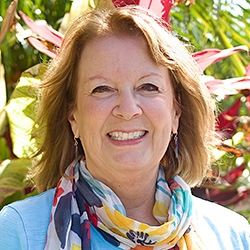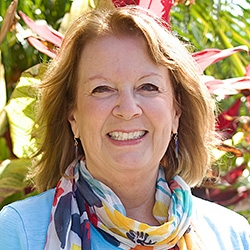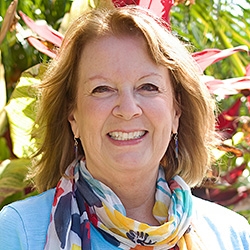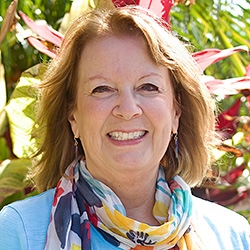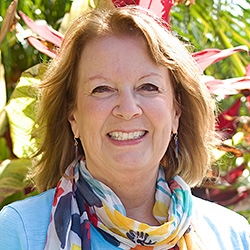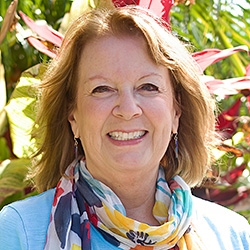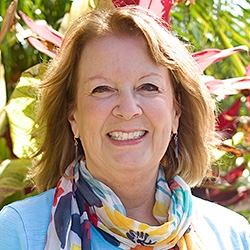
Search Results: responsiveness
-
Healthy differentiation is key to personal growth, learning and thriving relationships. When healthy differentiation is present, you can discern what's true for you and what you are and aren't responsible for in an interaction, and can be fully who you are in the presence of others. There are a number of ways you can become aware of and cultivate healthy differentiation. Let’s look at two here: self-connection and autonomy.
-
Awareness of how we're holding our own and others' needs is important to our development. In learning to value needs, we often go through three stages: passive, aggressive/obnoxious, and assertive/mutual. As we learn and grow, we may relate to the following differently: Whose feelings and needs are important, who is responsible for what, how our choices impact others, and consideration for ourselves and others.
-
Blame is a misguided habit that's used to avoid pain and suffering, offering only a momentary distraction and oversimplifies complex histories. It also disconnects us from choice and agency, blocks us from discovering more about ourselves and others, and can keep us from having compassionate, self responsible conversations. Instead, we can practice speaking in terms of impact and notice our experience without trying to escape it.
-
Miki responds to a participant’s question concerning fear of consequences when speaking with a manager at work. In this excerpt, she delves into the topic of choosing to inhabit nonviolence in the workplace, affirming that fear and nonviolence are incompatible, and that nonviolence is a powerful alternative to our habitual Fight, Flight, Freeze responses.
-
There's reactive anger - the sudden outbursts of words, temper or action that create a nervous system response in another. And then there's the anger that's a reaction to someone's anger -- a nervous system startle-response. Instead of either of these, we can learn to heal with empathy, look for unequal power dynamics, take responsibility to make repairs, and shift into the clean, life-serving, fully expressed anger and love.
-
- Celebrate and nurture your relationship to the Earth — and each other!
- Explore your connections to family, partner, work, nature, self and more
- Discover new ways to grow in community and work together to make this world a better place
- Engage and immerse yourself in NVC while making new friends!
-
Trainer Tip: When someone is in pain and lashing out, might be a time when empathy is needed most. Empathizing in these moments can be very challenging. Mary offers a few words of ecouragement for these situations.
-
Trainer Tip: Most of us have been conditioned to withhold the expression of our feelings to some degree. Mary offers a tip to de-stigmatize our feelings and relax into our humanness.
-
Trainer Tip: Mary offers 3 foundational tips for making requests: positivity, specificity and doability.
-
Trainer Tip: Mary explains the NVC principle known as the "protective use of force."
-
Trainer Tip: Ready to start a fight because you're right? Consider another strategy.
-
Join LoraKim Joyner to investigate how merging science, the social and emotional intelligence of humans, animals and other species and Nonviolent Communication can bring a greater sense of belonging and wholeness to your life, and care and justice to the lives of others.
-
Listen to Robert describe the five core principles of Living Compassion and the relationship of needs to spirituality. Great material for reflection and reference!
-
Enjoy listening to Miki make the distinction between leadership as a position and leadership as an orientation to life. The theme: when is it time to actively step into your vision?! Check it out.
-
Trainer Tip: It's up to us to get our own needs met. Mary offers some encouraging tips to do just that!
-
Trainer Tip: Mourning enables us to heal the pain and gain clarity about how to meet our needs in the present moment.
-
Miki will take you step-by-step through four vital systems that support radical collaboration and foster meaning. You’ll learn how to design a decision making process, create clear statements of intent, and create a process for resolving conflict.
-
Want things to change in your community, but feel frustrated or don’t know what to do? Miki’s intriguing overview of how to apply the principles of NVC to social change movements may have the exact blend of inspiration and ideas you’re seeking!
-
During this very moving session, you'll dive into Robert's exercises for supporting connection to your true self as opposed to your conditioned self.
-
Listen as Miki works with participants. Topics: how small requests serve interdependence; NVC process vs purpose; how to respond when empathy is used to create distance; coping with verbal aggression, and more!







